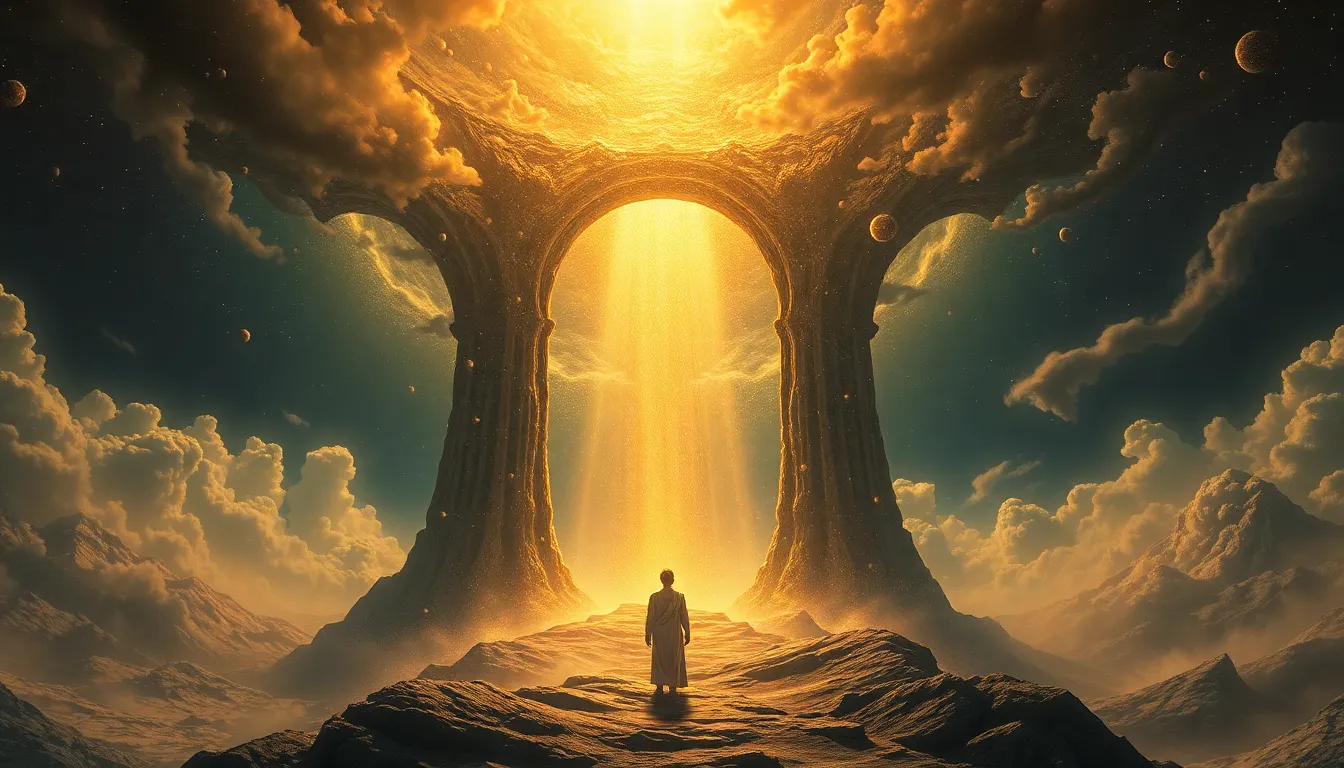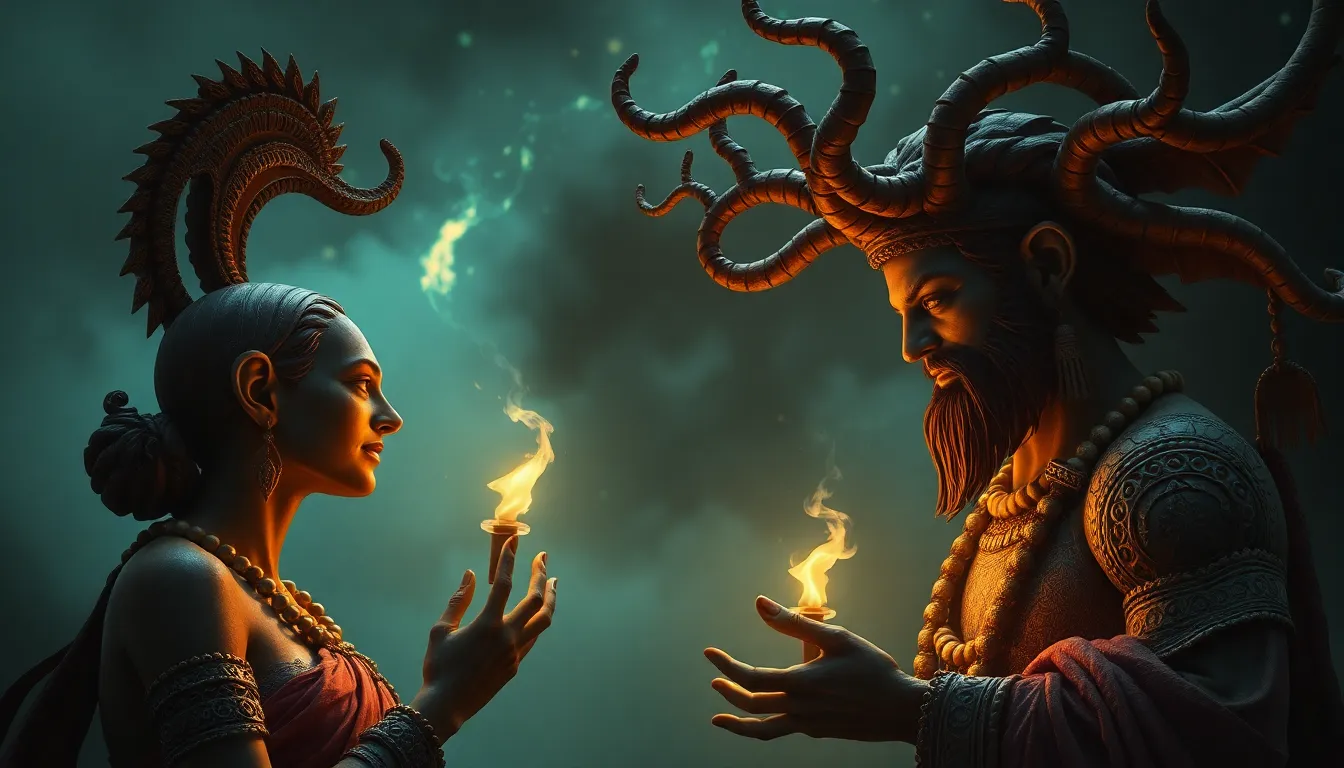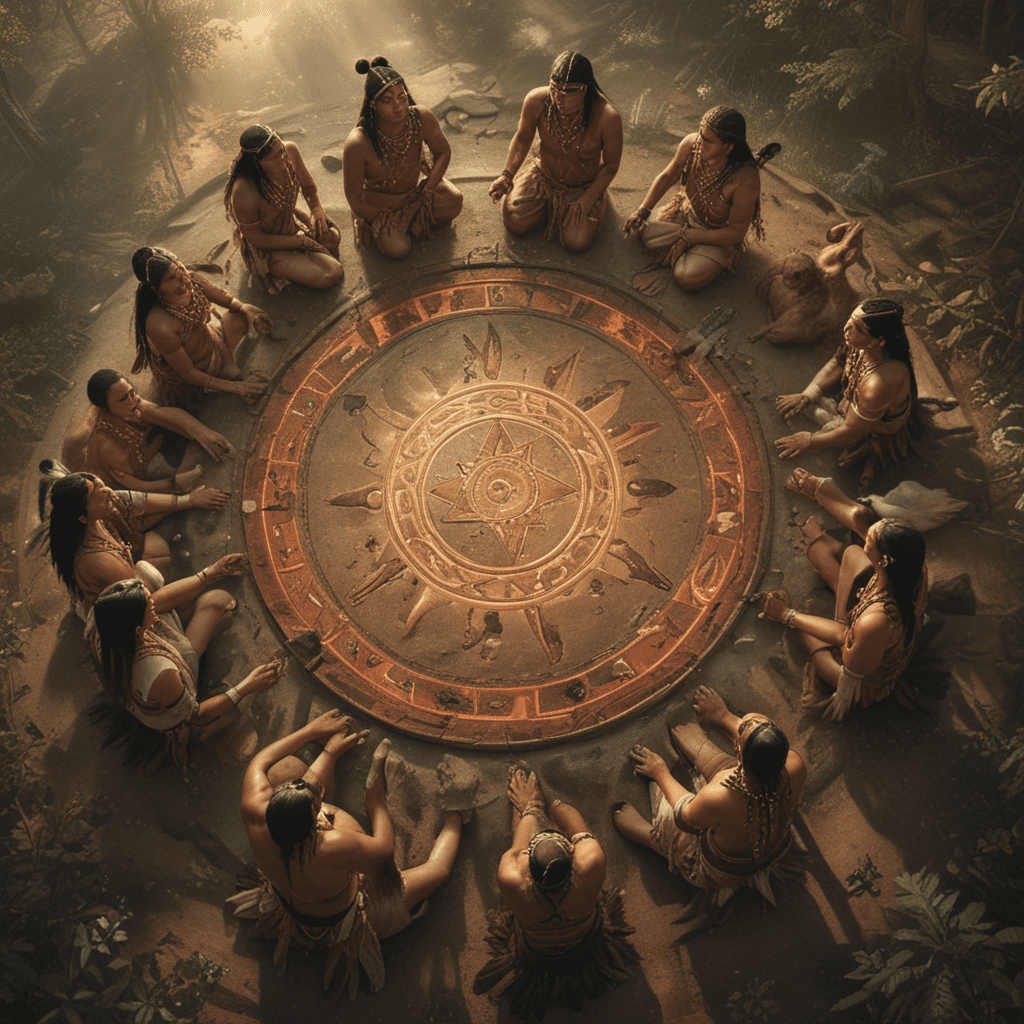The Origins of Existence: The Most Enigmatic Creation Myths
1. Introduction
Creation myths are foundational narratives that explain the origins of the universe, humanity, and the relationship between the two. These myths serve as a lens through which cultures understand their place in the cosmos, offering answers to profound questions about existence and purpose.
Across different societies, creation myths hold significant importance, reflecting the values, beliefs, and experiences of the people who tell them. They are not merely stories but are integral to cultural identity and continuity. This article explores some of the most enigmatic creation myths from around the world, delving into their themes, symbols, and implications for humanity.
2. The Role of Creation Myths in Human Understanding
Creation myths play a crucial role in shaping cultural identity. They provide a narrative that helps communities understand their origins and values. Here are some key functions of creation myths:
- Explaining Existence: They address humanity’s psychological need to comprehend existence and the universe.
- Shaping Values: They often reflect the ethical and moral frameworks of a culture.
- Natural Phenomena: They offer explanations for natural events and phenomena that might otherwise seem inexplicable.
3. The Cosmic Egg: A Universal Symbol
The cosmic egg is a motif found in various cultures, symbolizing the origin of the universe and life itself. In Hinduism, the concept of Brahmanda (the cosmic egg) describes the universe’s creation from a primordial state. Similarly, in Chinese mythology, the figure of Pangu emerges from a cosmic egg, breaking it to create the heavens and the earth.
The symbolism of the egg as a source of life is profound, representing potentiality, fertility, and the beginnings of existence. It encapsulates the idea that from a singular, unified state, diversity and complexity can arise.
4. The Primordial Chaos: From Nothing to Creation
Many creation myths begin with a state of chaos or nothingness. This concept of primordial chaos is evident in the Enuma Elish from Mesopotamia, where the chaotic waters of Tiamat are transformed into the structured world. Similarly, in Greek mythology, the figure of Chaos precedes the emergence of Gaia, symbolizing the transition from disorder to order.
This transformation from chaos to creation underscores a fundamental theme in many myths: that order and structure arise from seemingly formless beginnings, reflecting the complexities of existence itself.
5. The Divine Craftsman: Gods Shaping Existence
Creation myths often feature divine beings or craftspeople who shape the world and humanity. In the Judeo-Christian tradition, the God of Genesis creates the world through divine command, bringing forth light, land, and life in a structured manner. In contrast, African creation myths, such as those involving the god Obatala, depict a more collaborative approach to creation, where the divine craftsman molds humanity from clay.
The implications of a divine craftsman in these narratives highlight humanity’s relationship with the divine and the belief in a purposeful creation, imbuing existence with meaning and intention.
6. Creation Through Sacrifice: Life Emerging from Death
A recurring theme in many creation myths is the idea of creation through sacrifice. In Norse mythology, the giant Ymir is slain by the gods, and from his body, the world is formed. The Aztec god Quetzalcoatl also embodies this theme, as he sacrifices himself to create humanity.
These narratives reflect profound themes of life, death, and rebirth, suggesting that creation often involves loss and transformation. They encourage a deeper understanding of the cyclical nature of existence, where death leads to new beginnings.
7. The Role of Humans in Creation Myths
Diverse cultures depict the creation of humanity in various ways. In the Judeo-Christian narrative, Adam and Eve are formed by God and placed in the Garden of Eden, symbolizing a close relationship with the divine. In contrast, many Native American creation stories emphasize a more interconnected relationship between humans and nature, often portraying humanity as a part of a larger ecological system.
This comparative analysis reveals differing perspectives on humanity’s place in creation, highlighting the significance of the relationship between humans and the divine in shaping cultural identities.
8. Nature and the Environment: Creation as a Reflection of the Earth
Numerous creation myths emphasize the relationship between creation and nature. Indigenous creation stories, such as those from Aboriginal Australians and the Maori, often reflect a deep respect for the earth and its ecosystems. These narratives teach valuable lessons about sustainability and the interdependence of all living beings.
By emphasizing the importance of nature in creation, these myths remind us of our responsibility to care for the environment and maintain a harmonious relationship with the earth.
9. Modern Interpretations and Adaptations of Creation Myths
As contemporary society encounters scientific advancements, traditional creation myths face reinterpretation. The impact of science on these narratives has led to a nuanced understanding of existence. In modern literature and film, ancient creation stories are often adapted to explore themes of identity, existence, and the human condition.
Despite changes in interpretation, the relevance of creation myths remains strong. They continue to resonate with people’s search for meaning and understanding in a complex world, bridging ancient wisdom with contemporary thought.
Conclusion
Creation myths serve as powerful narratives that reflect humanity’s quest for understanding the origins of existence. Through themes of chaos, divine craftsmanship, sacrifice, and the relationship between humans and nature, these myths offer insights into cultural identity and values. As we navigate the complexities of modern existence, the enigmatic stories of our past continue to inspire and guide us.



